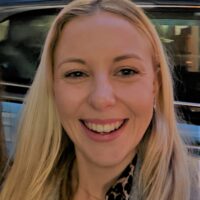Listening to young people with special educational needs and disabilities (SEND)

Today (19 June 2023) is the start of Learning Disability Week. This annual event, organised by Mencap, aims to educate, spread awareness, and increase understanding of learning disabilities. It is all about making sure the world hears what life is like if you have a learning disability. Here Amber Jordan and Emma Jones from the ONS’s Centre for Equalities and Inclusion explain some of the work the ONS has been doing, looking at the educational experiences of young people with special educational needs and disabilities (SEND).
A child or young person has SEND if they need special educational provision, this includes those with learning disabilities. We wanted to find out first-hand how they feel about their education, what they find helpful and what difficulties they face.
Thinking about how best to approach this work was a new challenge for us. We worked with a youth expert panel to help design the methods and materials and travelled to schools across England to hear directly from 11 to 16-year-olds with SEND about their experiences.
We used creative methods, like drawing and Lego, to facilitate discussions with pupils to find out what they felt was going well, suggestions for improvements and what their ideal school would be like.
At the end of their interviews, we asked young people how they would like to hear about the findings of the research, which led to a video and young person friendly report being produced.
We saw and heard about some great examples of how young people with SEND could be supported in school. Pupils mentioned that dedicated learning centres and hubs, sensory rooms, and additional facilities all helped to make learning and other aspects of school more accessible.
They have a sensory room upstairs and I love it, it’s amazing. I say, it’s easier to calm down in there because it’s like dark. You can have fun lights on, it’s not flashy, there’s no noise, it’s quiet. So, if I’m getting overwhelmed, or anyone’s getting overwhelmed or anxious, it’s easy just to go into the sensory room.
*Spencer, aged 14 to 16 years
(*We asked young people to choose a “fake” name, also called a pseudonym, which would not identify them.)
Some schools also had clubs and buddy systems, which could help pupils to build friendships and feel supported and included.
Where schools and education staff were able to be flexible and respond to young people’s preferences and needs, for example by tailoring lessons to different learning styles, this helped them to learn better and feel happier at school.
Instead of giving you word on word of random stuff you need to learn, Miss will like act it out. And she’ll get pictures on the board so you can remember. Like we’re doing the biomes at the moment, and I could probably name three of them. Like tropical rainforest and then Sahara is because we look at Disney films that are set in the different biomes. Sahara Desert is where the Lion King is, so we all do the Lion King. So, it just sticks in my brain.
Jess, aged 11 to 13 years
However, not all experiences were positive. The perceived rigidity of SEND systems and processes, lack of resource, and pupils not feeling listened to or understood were all highlighted as key issues affecting young people’s learning and well-being. Parents, education staff and other stakeholders told us how important it is to find out directly from pupils with SEND what works and what doesn’t so that new guidance can be developed to improve their educational experiences.
As our research coincided with the Department for Education’s (DfE’s) review of the SEND and alternative provision system, we shared the published findings with them directly to ensure the views of SEND students could inform the development of their implementation plan.
Children and young people are one of the groups identified as under-represented in UK data by the Inclusive Data Taskforce (IDTF), a group of independent experts appointed by the National Statistician to recommend how we can improve inclusivity of UK data and evidence. Speaking to children and young people directly helps to ensures their perspectives and experiences can be better understood and considered when making decisions and designing services that will affect them. Research projects like this help to make our data and evidence more inclusive, as highlighted in the Annual Review of progress towards inclusivity.
Another ongoing ONS project involves research with young people who have been displaced due to armed conflict, discrimination and poverty, among other reasons. Many are refugees or asylum seekers. We have been working with peer researchers (other young people with experiences of displacement) to ask participants about their experiences since coming to the UK in areas such as housing, education and healthcare as well as their future aspirations. We plan to publish these findings early next year.
In both of these projects, our aim is for ONS evidence to shed light on the lives of groups who may otherwise be ‘invisible’ and to ensure that their views can be heard as service providers and policy makers make decisions affecting them.

Emma Jones is Governance Manager for Inclusive Data at ONS

Amber Jordan is Head of Qualitative Research for the Centre for Equalities and Inclusion at ONS